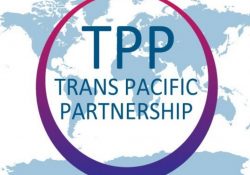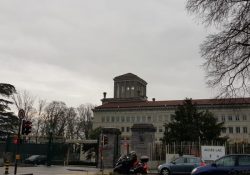Search Results for: car t
US department of Commerce heavily redacts FOIA request regarding Thailand compulsory license
What type of leverage has the Obama Administration used to pressure Thailand to prevent the granting of compulsory licenses on drug patents? The US Department of Commerce has just released a FOIA request with 298 pages of documents on this topic. 136 pages of the FOIA are for a Fall 2010 masters theses by Stephanie Tranchevent Rosenberg (pages 36 to 171 of the FOIA). Continue Reading
More on the 3-step test in global copyright negotiations
This is an elaboration on the 3-step test in multilateral agreements. The 1996 WCT Copyright treaty has bad language on the 3-step test, but the WCT is not now part of the TRIPS agreement, and is only subject to dispute resolution via trade agreements outside of the WTO, like the TPPA.
If the WCT is referenced under the general provisions to the TPPA, you also get the 3-step test in the TPPA, subject, however, to the agreed upon statement regarding Article 10, which is helpful.
Australia, Chile and New Zealand reply to UN Rapporteur for Right to Health on TPP complaints
KEI has recently learned that 6 of 9 countries ignored a UN Special Rapporteur request to respond to the March 22, 2011 complaint regarding the TPP. We are also disappointed in the comments from the three that did respond. The UN process for dealing with such complaints is somewhat bureaucratic and secretive. Among the three countries that did respond, Australia, Chile and New Zealand, all defended the secrecy of the TPP negotiating text and asserted that the TPP would not violate the right to health. Continue Reading
Business hires of former government employees as lobbyists
In Washington, DC there is a large and growing influence industry. One element of this industry is the thousands of people who register as lobbyists with the Congress. Because of the way disclosure rules are written, this is only a fraction of the persons who are actually employed to influence the Congress or the Executive Branch. Continue Reading
USTR hearing on Mexico joining the TPP
In August, KEI provided comments to USTR regarding the entry of Mexico and Canada into the TPP negotiations. (https://www.keionline.org/node/1542). Today is the public hearing. Right now there are about 35 people in the audience, and a panel of 9 persons from various agencies hearing the testimonies. There are only 10 witnesses in today’s hearing, and only three, KEI, PhRMA and IIPA, are speaking on IPR issues.
Intellectual Property Appellate Board (Chennai) dismisses Bayer’s request for a stay on compulsory license for sorafenib
On 12 March 2012 the Controller General of Patents,Designs & Trademarks of India issued an order granting a compulsory license under Section 84 of the Patents Act (1970) to Natco in patent number 215758 granted to Bayer covering the anti-drug sorafenib toslyate. KEI filed an affidavit in this compulsory licensing dispute involving Natco and Bayer. Following the issuance of a compulsory license, Bayer requested the Intellectual Property Appellate Board (IPAB) to issue a stay on the compulsory license.
Test data protection for medical inventions
Test data protection is a sui generis intellectual property right that was first developed in the 1980s for pharmaceutical drugs, and has been extended recently to biologic drugs and vaccines.
Members of Congress and Governors backing PhRMA/BIO, calling for 12 years data protection for biologic drugs in TPP
While the GOP and Democratic conventions highlight the differences between the parties, there are some bipartisan issues, and one of the biggest is taking care of corporate interests.
September 2011: Spotlight on India at the WTO Trade Policy Review
On 14 September 2011 and 16 September 2011, the World Trade Organization (WTO) undertook a trade policy review of India. All members of the WTO are subject to review under the Trade Policy Review Mechanism (TPRM). The TPRM takes place in the “Trade Policy Review Body which is actually the WTO General Council — comprising the WTO’s full membership — operating under special rules and procedures” (Source: WTO, Trade Policy Reviews: Brief Introduction). Continue Reading


